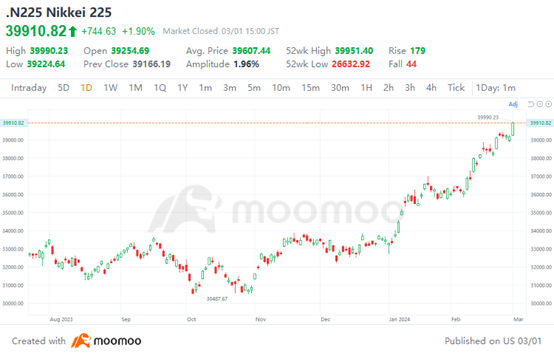The Bank of Japan, which has implemented Quantitative and Qualitative Easing (QQE) for several years, is one of the few central banks that has not yet raised interest rates. As of February 20, 2024, the Bank of Japan's balance sheet has swelled to a total size of 758.28 trillion yen, far exceeding the GDP for 2023, which was 591 trillion yen. The Bank of Japan holds approximately 598.6 trillion yen in Japanese Government Bonds (JGBs) and about 37.19 trillion yen in stock ETFs (which accounts for a 4% share).


safri_moomoor : yes